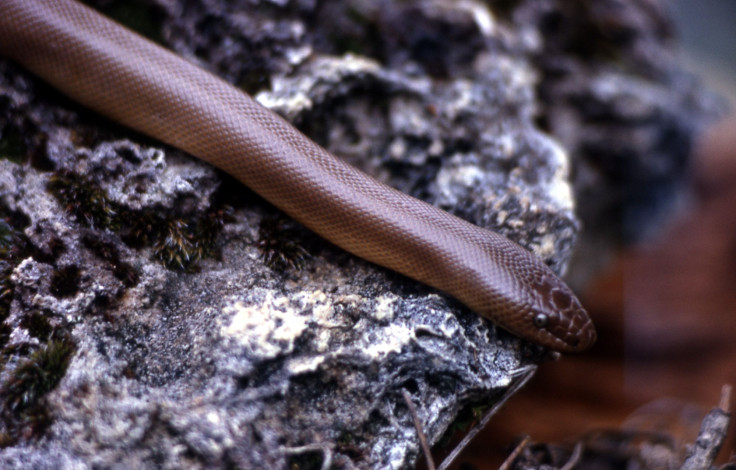New ‘critically endangered’ silver boa discovered by scientists in a remote corner of the Bahamas

Dr. Graham Reynolds from the University of North Carolina Asheville led a team of researchers into the Bahamian Archipelago only to discover a new species of boa in the remote Conception Island Bank. The new species of non-venomous boid snake has been named Chilabothrus argentums (common name Conception Bank silver boa). The snake is considered ‘critically endangered’ and is also one of the most endangered boa species in the world.
The study describing the new snake has been published in the journal Breviora. It represents “the first new in situ discovery of a West Indian Boa species in 73 years.” The new silver boa discovered averaged about 37 to 43 inches in length from its urogenital vent to the tip of its snout. Its tail is about eight inches long.
“It has been at least 58 years since the in situ discovery of new populations of taxonomically distinct boas in the region, the last being the report in 1957 of boas on Margaret Cay, Ragged Islands, Bahamas,” the scientists told Science News.
The silver boa has a unique colour among Bahamian boa species. The ventral (lower) surface is cream white without any markings or other colouration. The dorsal (upper) part is silver grey and has a very light tan. It has occasional faint grey dorsal stripes that extend the length of the spine with occasional interruption and jagged edges.
The scientists have put the total number of West Indian boa species to 12. Dr. Robert Henderson from the Milwaukee Museum of Natural History and a boa expert said that discovering new species of snakes is very rare. He appreciated Reynolds’ discovery describing it as “rare, exciting, and newsworthy.”
Reynolds said that his find shows that there are important discoveries still waiting to be made. He said that people of the Bahamas have yet another reason to be proud because of the natural wonders their island nation host.
“We found this species on its way to extinction, and now we have the opportunity to intervene on their behalf so that doesn’t happen,” Reynolds added.





















